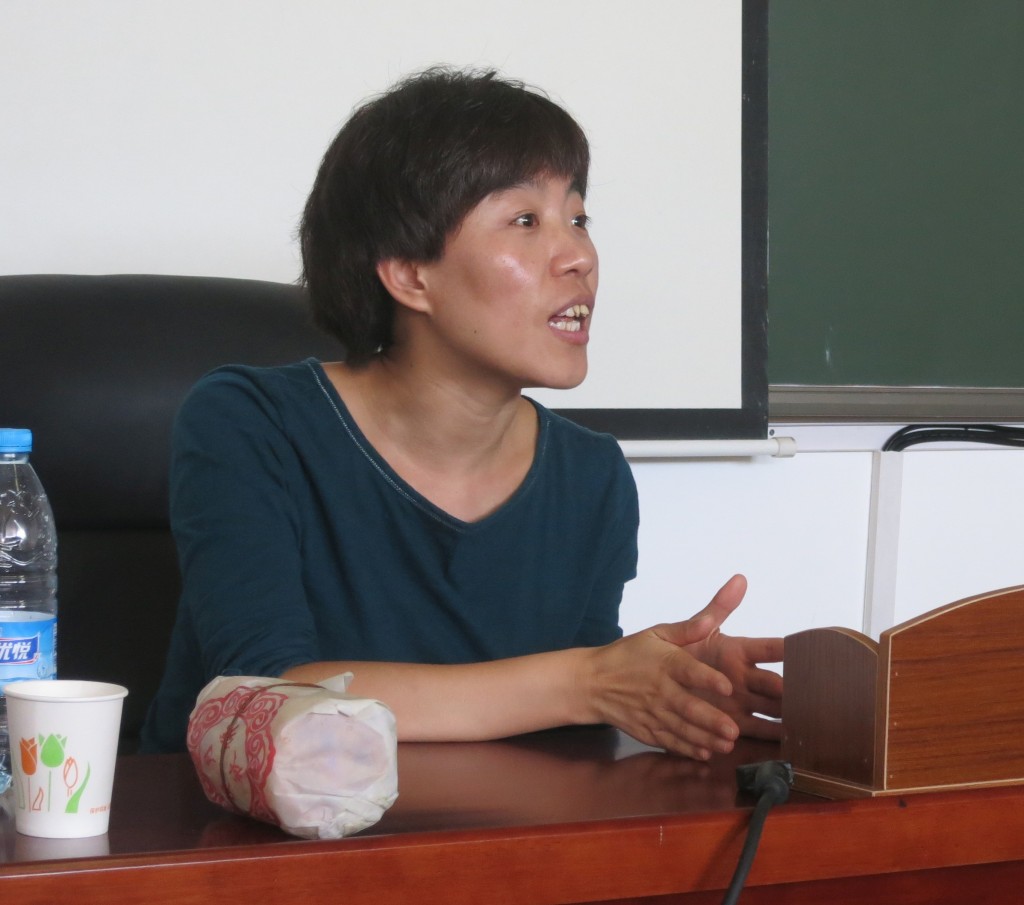 Cheng Furui is teaching at Hebei University of Economics and Business in China now. She is launching a new research focused on basic income.
Cheng Furui is teaching at Hebei University of Economics and Business in China now. She is launching a new research focused on basic income.
Can you remember how you first heard about Basic Income?
Ten years ago, when I was doing my PhD in Tsinghua University, my supervisor Cui Zhiyuan introduced basic income to me. I was very interested in it at that time, but I hadn’t make it as the final topic of my dissertation. Now, I am back!
How would you describe some of the current society topics in your country and how does Basic Income fit into it?
China has quite a number of public assets, including land and a lot of public enterprises. Our government has been thinking about how to make good use of these assets for a long time. The newest reform plan was just issued a few days ago.
Your International Week activity: a reading club and discussion at Tsinghua University on 12th Sep – How did it go?
We read Philippe Van Parijs‘ famous book Real Freedom for All and discussed the core questions in the book. Besides, we made the future basic income research plan and reading plan. It is very successful. Ten people participated in the discussion, and most are PhD students. The reading began from 9:15 am, and was not finished until 4:30 pm!
How large is the movement for Basic Income in China at this moment?
As far as I know, we are the first group to do this. It started here due to Professor Cui Zhiyuan from Tsinghua University , who is one of the most famous supporters of basic income movement.
How much (active) support for Basic Income is there in China at the moment and why do people think it’s a good idea?
No that much. I don’t know the reasons of other supporters for real. For myself, I have spent a few years on investigating Chinese current social security system, especially the safety net. I think the means-tested benefit system severely invades personal freedom.
What are the main arguments AGAINST it – and is there an open discussion?
They ask: Why give it to everyone? When we first introduce BI to strangers, most people, including policy makers, will doubt the universality. The arguments are largely based on economic efficency and affordability. And other opponents think it is conflicting with the current distribution system thus very hard to work.
A growing number of countries have either had model projects or are thinking about carrying out a model project (confined to a geographical or socio-demographic group of people) – are there any similar plans in your country?
Not yet. But China has many different kinds of local welfare from public assets, such as land, especially in the process of quick urbanization, in which land plays a key role. If connected this with BI conception, it seems that there are a lot of interesting practices worth paying attention to.
How could something like Basic Income be put into practice?
If you consider the history of sovereign wealth funds in many countries, even Alaska’s Permanent Fund Dividend (see interviews with Scott Santens and Taku Fundira), the advantage is not very difficult to understand. Further experiments and evidences are needed.
What is your vision for UBI, for China and worldwide?
There is a very long way to go, but still hopeful.
And what are your next steps?
Theoretically, the reading club will absorb and explore the just society philosophy from the worldwide perspective. Practically, we Chinese BI group will investigate various local cases about public land using and other public assets‘ income distribution system, especially connecting these with the real freedom of all. Based on the above, we shall probe the feasibility of UBI in the future.
by Manja Taylor, 13.09.2015
2 comments on Interview with Cheng Furui, lecturer, China
Comments are closed.